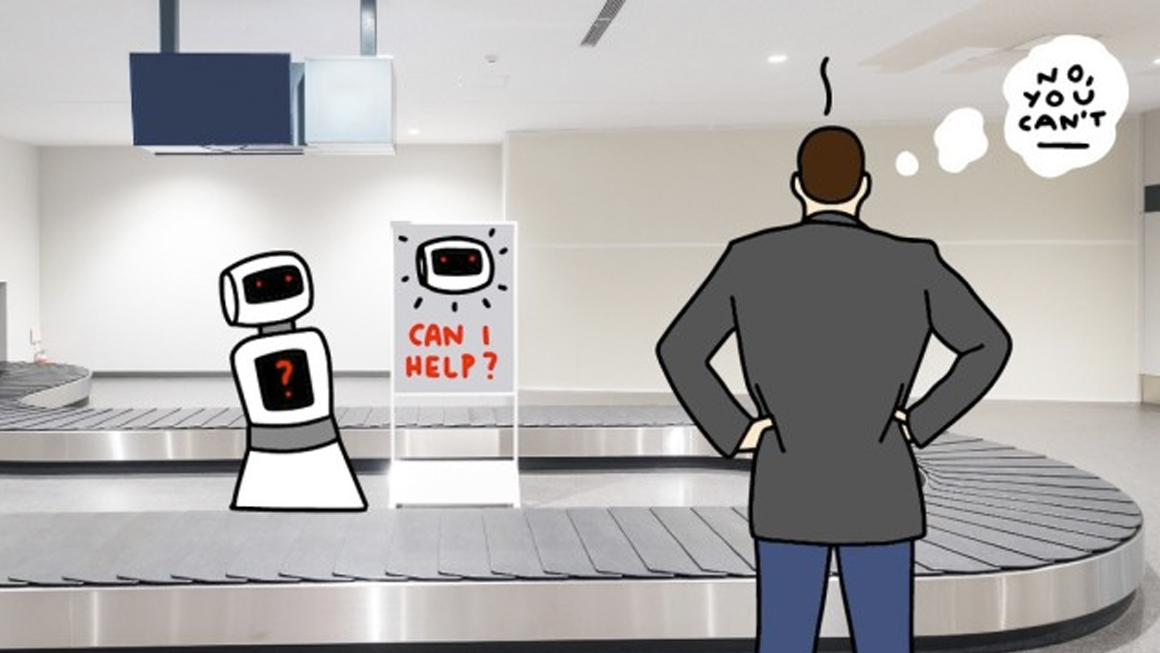
Humans, not chatbots, should deal with points of friction in your business
I’m passionate about technology. Automation and machine learning are amazing at taking care of the grunt work in every business, creating leaner, more streamlined organisations.
But technology will never replace the human touch.
When a customer is experiencing an issue, or needs an urgent solution, the last thing they want to do is communicate with a chatbot or get funnelled into an automated system.
The purpose of technology should be to free up your brilliant people so that they can provide that tender loving care to customers when they need it most.
I was reminded of this recently when travelling from Boston to New York with Delta Airlines. I landed in Terminal 4 at JFK Airport and waited by the carousel for my luggage. One bag was missing.
Delta has won several awards for its customer service, so I reported the issue and expected a swift resolution.
There is a customer helpline with an automated service for reporting lost luggage, but this is the last thing a tired traveller wants to engage with at the end of their journey. I wanted help from customer service on the ground.
I spoke to the lost baggage team and was told that my luggage would be brought to me in five minutes. What followed was two hours of chaos. I was ignored, misdirected, fobbed off, and ultimately forgotten.
I was made to feel like an annoyance. I was passed from pillar to post. For Delta, this is a classic friction point. But instead of ensuring that talented and helpful people were on hand to deal with it, Delta dropped the ball.
When you are running a business, there will occasionally be issues – there’s nothing you can do about that. Customers do understand that problems arise – what they remember is how the company deals with it. Every unhappy customer is an opportunity to turn a negative experience into a positive one. That is the way to create a lifelong fan.
When you lose a customer, you don’t just miss out on a single sale, you hamper the growth of your company. You are losing the lifetime value of that customer, you are missing out on a great review, which could persuade others to buy, and you are crushing any hope of future referrals.
At BigChange, the whole senior team is obsessed with customer service. We are always at the end of the phone if a customer needs help. From day one, my email address and mobile number have been available to customers, and I still take calls day or night. Our fantastic customer service team, Roadcrew, is available 24/7.
The business is geared to serve our customers. We have a “red flag” ticket, which alerts the whole team, including the leaders, if an issue arises. This means that we are united, as a company, behind our service ethos, working together to solve problems quickly and effectively.
At JFK, there were no managers available – no one I could escalate my concerns to. I filled out a digital form and considered facing the endless multiple-choice menus on the telephone hotline, when I saw my bag appear on a nearby carousel. No one noticed when I picked it up and went on my way.
Delta is still technically searching for my bag, but no one has been in touch to give me an update or check whether I need assistance. I could have had medications or important documents in that bag.
As technology evolves, and artificial intelligence comes to the fore, we leaders must never lose sight of the role humans have to play at all levels of business. There will never be any substitute for the warmth and problem-solving ability of a human being. And if anyone from Delta is reading this, I will probably fly with you again – but I’d give American Airlines a shot now too.
